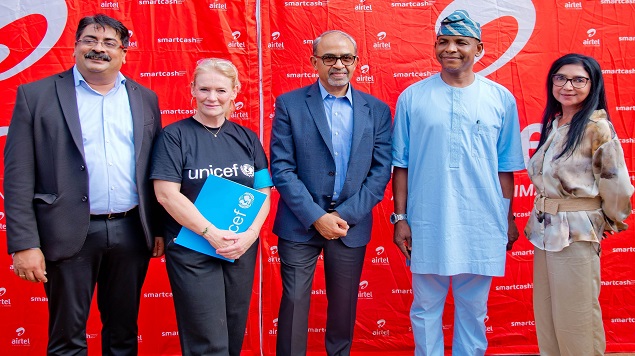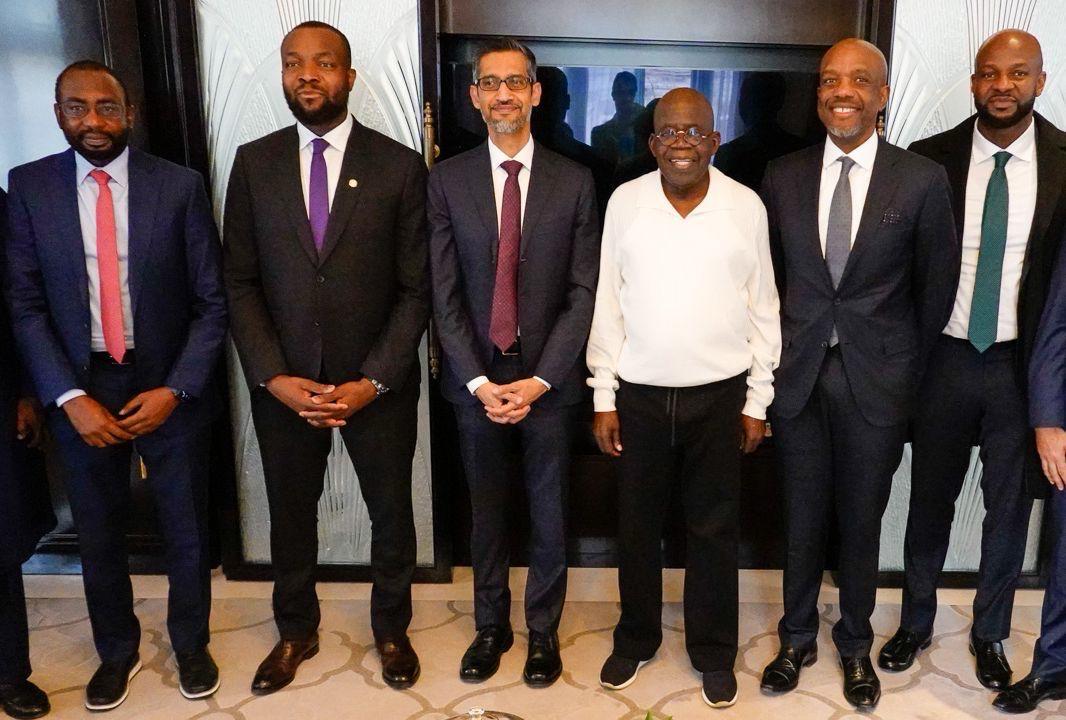Telecom
Google Turns Smartphones into Real-time Translators

Google began turning smartphones into real-time language translators of both written and spoken content. Google is hoping that, along with making it easier for people to understand one another on their travels, Google Translate will serve as a useful tool for teachers, medical personnel, police and others with important roles in increasingly multi-lingual communities.
The company on yesterday began rolling out a new version of a free Google Translate application that, in part, lets people point Android or Apple smartphones at signs, menus, recipes or other material written in French, German, Italian, Portuguese, Russian, or Spanish and see it in English.
“We’re letting you instantly translate text using your camera, so it’s way easier to navigate street signs in the Italian countryside or decide what to order off a Barcelona menu,” the Google Translate team said in a blog post.
The feature builds on Word Lens technology that Google acquired last year when it bought Quest Visual, a startup founded by former video game developer Otavio Good.
Word Lens uses video mode in smartphone cameras to scan scenes, identify writing and then display it as if it were written in English, a demonstration by Good revealed.
“If you are looking at a restaurant menu, it’s nice to see which thing on the menu you are looking at so you can point at it when you order,” Good said as he used his iPhone to scan and translate an Italian pasta recipe.
Word Lens in Google Translate operates independent of the Internet, avoiding data charges from telecommunication service providers, he explained.
The new Google Translate also features a conversation mode that uses voice recognition and the power of the Internet cloud to translate both sides of a chat between people speaking different languages, the demonstration showed.
People pair any two of 38 language options, then smartphones listen in and convert them during chats. An automated voice speaks translations, which are displayed in writing on smartphone screens, while transcripts of chats can be saved.
Computing power for translating conversations comes from Google servers, so connections to the Internet through WiFi or telecom carriers are needed.
The team at Google is working to expand available languages and capabilities, according to Good.
Telecom
Angst over Telecom Tariff Hike as Subscribers Demand Sanctions, Labour Orders Boycott

National Association of Telecommunications Subscribers (NATCOMS), body of telecommunications subscribers in the country has called for sanctions against telecommunications operators in the country for allegedly undermining the agreement between organized labour and the federal government.

This is coming as the NLC called for a nationwide boycott of telecom services, starting March 1.
But the National Association of Telecommunications Subscribers has recused itself from the boycott but berated telecom operators for undermining the agreement between the NLC and federal government.
It asked the Nigerian Communications Commission (NCC) to sanction operators for proceeding with the increase without approval, emphasising that the telecom companies’ actions undermine the review process and disregard the concerns of Nigerian consumers.
Deolu Ogunbanjo, president, NATCOMS said that “The telcos didn’t wait for the two-week period or the end of the month. So, why did the telcos proceed with the tariff increase without considering the agreement made with the NLC?”
According to Ogunbanjo, his group is clamouring for a 10 per cent increase from 50 per cent.
He said that NATCOMS was awaiting the outcome of the panel to determine whether it would proceed to court.
“All we wanted was that, during an emergency meeting last Friday, we suggested that rather than going straight to court, we could first consider the outcome of the protest and the panel being set up by the NLC.”
Ogunbanjo also proposed alternatives to the immediate tariff hike, suggesting that a phased increase could have been negotiated.
“We proposed a 10 per cent increase as an alternative or even a 30 per cent increase in phases. Just like the fuel price hike, which was phased from N200 to N600, such a phased increase could have been negotiated,” he said.
Elsewhere, the NLC has called for a nationwide boycott of telecom services.
In a communique signed by Joe Ajaero, president and Emma Ugboaja, general secretary respectively following a meeting of the union’s Central Working Committee in Lokoja on Tuesday, the union accused telecom companies of breaching public trust and flouting due process by implementing the controversial tariff hike before the 10-man review panel had completed its deliberations.
The NLC further chastised the government for its failure to safeguard citizens from corporate exploitation.
As part of its initial response to the tariff increase, the NLC had called on Nigerian workers and sympathetic citizens to boycott the services of MTN, Airtel, and Glo daily from 11:00 am to 2:00 pm, starting February 13 and continuing through February 2025.
In its latest communique, the union stated, “All workers and citizens are urged to suspend the purchase of data from these companies, which have become among the most significant tools for exploiting Nigerian citizens. We also demand the repatriation of all funds unlawfully siphoned out of the country by these firms.”
The union gave the telecom companies until the end of February 2025 to reverse the tariff increase, warning that if the operators fail to comply, a nationwide shutdown of their services will be enforced starting March 1, 2025.
The NLC instructed its state councils to immediately begin sensitising and mobilising their members, as well as the general public, in their regions.
Additionally, it requested its affiliate unions to encourage members across the country to observe “electronic silence” during the designated hours of protest.
Telecom
Airtel, UNICEF Commend Lagos School on Impressive Use of Nigeria Learning Passport

Sunil Taldar, the Group Chief Executive Officer of Airtel Africa, has described as remarkable the progress recorded by St Agnes Primary School, Maryland Lagos with the use of the Nigeria Learning Passport as part of the Reimagine Education Programme introduced by Airtel and the United Nations Children’s Fund (UNICEF) in 2022.

Mr Taldar made this declaration while on a joint visit with the leadership of UNICEF and Airtel Nigeria. The delegation, which included the Chief Executive Officer, Airtel Nigeria, Dinesh Balsingh; UNICEF Chief of Field Office, Celine Lafoucriere; and other senior executives from Airtel and UNICEF, engaged with school administrators, teachers, and pupils to assess the progress recorded under the Reimagine Education Programme.
This visit marks another significant step in Airtel’s long-standing collaboration with UNICEF to drive inclusive and technology-driven education, ensuring that more Nigerian children have access to quality learning resources.
Through the collaboration, Airtel has reported that over 1,200 schools have been equipped with tablets and data to connect teachers and learners to digital learning platforms.
Speaking with the media after a demonstration of NLP and digital learning devices, Mr Taldar said, “What I saw today at St Agnes Primary School was impressive and we are encouraged by the impact made for students and teachers through our partnership with UNICEF,” adding that “our partnership with UNICEF is one of the ways we are ensuring that more children in Nigeria and beyond have access to digital learning tools that will equip them for their future. This visit reaffirms our dedication to making education more inclusive, accessible, and impactful.”
Also commenting on the company`s commitment to digital education and bridging the digital divide for Nigerian children, the Chief Executive Officer and Managing Director of Airtel Nigeria, Dinesh Balsingh, highlighted the importance of technology-driven learning, the impact of Airtel’s partnership with UNICEF, and the role of the Nigeria Learning Passport in providing students and teachers with essential digital learning tools.
“At Airtel Nigeria, we are deeply committed to empowering young minds through technology-driven education. Our visit to St. Agnes Primary School underscores our dedication to bridging the digital divide and ensuring that more Nigerian children have access to quality learning resources.
Through our partnership with UNICEF, we continue to invest in initiatives like the Nigeria Learning Passport, which provides students and teachers with the tools they need to succeed in a rapidly evolving digital world.”
On her part, UNICEF Chief of Lagos Field Office, Celine Lafoucriere, emphasised the importance of collaborative efforts to reimagine education.
“Education is a fundamental right, and digital learning has become a key enabler in bridging educational gaps. Our partnership with Airtel Africa and Airtel Nigeria continues to provide innovative learning solutions, ensuring that every child, regardless of location or socio-economic status, has the opportunity to learn and thrive.
We are excited about the ongoing implementation of the Nigeria Learning Passport and the transformation it brings to education in Nigeria,” she said.
Recall that in 2023, Airtel and UNICEF paid a similar visit to Oremeji Primary School Ajegunle Lagos, one of Airtel Nigeria’s seven adopted schools.
This visit to St. Agnes Primary School reflects a broader engagement with schools benefiting from the Nigeria Learning Passport (NLP) – a digital education platform developed by UNICEF in partnership with the Nigerian government and Microsoft.
The NLP is designed to provide accessible, high-quality educational content to students, teachers, and parents, supporting learning both in and outside the classroom.
Airtel’s collaboration with UNICEF aligns with its broader corporate social responsibility (CSR) agenda to support education, digital inclusion, and sustainable development.
The Nigeria Learning Passport continues to gain traction as a powerful tool in ensuring that children, including those in remote and underserved areas, have access to interactive, high-quality educational content.
At Airtel Africa, we believe that education is the cornerstone of progress, and we remain committed to leveraging technology to drive sustainable learning solutions across the continent.
Telecom
Google CEO Meets Tinubu, Reaffirms Commitment to Nigeria’s Digital Transformation

President Bola Ahmed Tinubu has commended Google Chief Executive Officer Sundar Pichai for the interest of the company in advancing Artificial Intelligence and digitap transformation in Nigeria.

L-R: Director-General of National Information, Technology, Development Agency, Kashifu Inuwa Abdullahi, Minister of Communications, Innovation and Digital Economy, Bosun Tijani, Google Chief Executive, Sundar Pichai, President Bola Tinubu, James Manyika, Google Senior Vice President for Research, Technology and Society, James Manyika and Google Managing Director, Sub Saharan Africa, Alex Okosi during a meeting with President Tinubu in Paris on Wednesday
President Tinubu met the Google team in Paris on Wednesday in company of Minister of Communication, Innovation and Digital Economy Bosun Tijani.
Google Team engaged in constructive discussions with President Tinubu aimed at forging a strategic partnership to enhance Nigeria’s journey towards Artificial Intelligence (AI) and digital transformation.
The collaboration seeks to position Nigeria as a prominent technology and innovation hub, leveraging AI, cloud computing, and digital infrastructure to foster economic growth and enhance global competitiveness.
The ongoing conversations focus on key initiatives such as expanding digital infrastructure in Nigeria, equipping the workforce with essential digital skills for the future, promoting AI-driven research and innovation, encouraging greater cloud adoption across various industries, and establishing Nigeria as a key player in the global digital economy.
President Tinubu emphasised that this partnership aligns seamlessly with his administration’s Renewed Hope Agenda, centred on economic diversification through industrialisation, technology, and innovation. The Federal Ministry of Communications, Innovation, and Digital Economy will provide strategic oversight, while the National Information Technology Development Agency (NITDA) will coordinate efforts alongside the private sector to ensure widespread and meaningful impact.
Speaking at the meeting, Google CEO Sundar Pichai reaffirmed the company’s commitment to supporting Nigeria’s digital transformation, stating: “Nigeria has an incredible opportunity to lead in AI and digital innovation in Africa. Google is excited to continue working with the Nigerian government to create an ecosystem that fosters innovation and economic growth.”
Speaking on the engagement with the President, Dr. Bosun Tijani said partnership between Nigeria and Google represents an important opportunity to accelerate Nigeria’s technological advancement and strengthen our digital economy. He further stated that Nigeria is committed to ensuring that AI and digital transformation create tangible benefits for businesses and citizens across the country.
President Tinubu acknowledged Nigeria’s potential as a burgeoning global technology destination and expressed his commitment to fostering a business-friendly environment that attracts strategic investments from leading tech companies. He appreciated Google’s ongoing involvement in Nigeria’s digital transformation and its contribution to opening new opportunities for businesses and young talents.
The discussions will continue as both parties look to deepen their collaboration and expedite Nigeria’s digital transformation, paving the way for sustainable economic growth.

 E-Financial2 days ago
E-Financial2 days agoCustomers File Class Action Suits against Access and Zenith Banks

 E-Business2 days ago
E-Business2 days agoGSMA Launches Innovation Fund to Boost AI Solutions in Emerging Markets

 E-Business2 days ago
E-Business2 days agoTemu Celebrates 100 Days in Nigeria with Deals and Growing Fan Base

 Telecom2 days ago
Telecom2 days agoVitel Wireless Makes History as First MVNO to Get Mobile Number Series

 E-Financial2 days ago
E-Financial2 days agoFidelity Bank Gets Shareholders’ Approval to Increase Share Capital

 E-Business2 days ago
E-Business2 days agoGoogle Messages to Enable WhatsApp Video Calls

 E-Business2 days ago
E-Business2 days agoMRA Calls for Safer Internet User Rights in Nigeria

 E-Financial1 day ago
E-Financial1 day agoFG Takes Full Ownership of Keystone Bank














